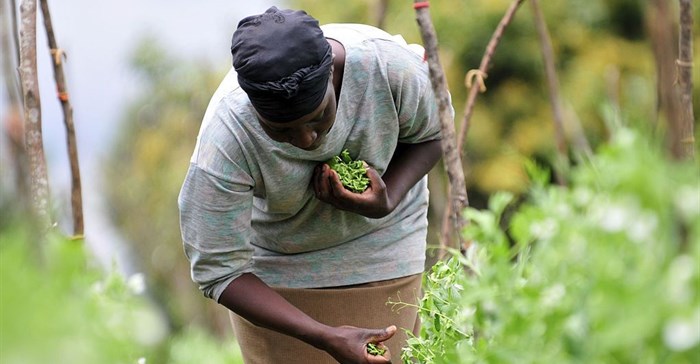African leaders reconfirmed that agriculture should remain high on the continent's development agenda as a means to end hunger and halve poverty by 2025 when they signed the Malabo Declaration in 2014 - calling for a significant shift in the way agriculture has been handled across the continent.
The future of agriculture depends on the management of climate change.
The release of the first Malabo Biennial Report on the Malabo Commitment to accelerate agricultural growth and transformation for shared prosperity and improved livelihoods has been welcomed by Care International (CI), the Graça Machel Trust (GMT) and the Food, Agriculture Natural Resources Policy Analysis Network (Fanpran).
Reflecting on the launch of the report, Dr Tobias Takavarasha, the chief executive officer of Fanpran said: “The timely release of the report is a demonstration of commitment by member states and the African Union to increase investment in agriculture. We commend African heads of states and governments and the African Union Commission (AUC) on the expeditious biennial reporting process. We especially congratulate the 20 countries that have reported to be ontrack for achieving the commitments by 2025. This process will certainly prevent governments and other non-state actors from backtracking on the Malabo commitments.”
Investments needed to address threats to food security, enhance climate resilience of farmers
In spite of the threat of climate change, a significant number of AU member states continue to rely on rain-fed agriculture.
Millions of Africans are directly affected by the adverse effects of climate change which undermine current efforts to reduce hunger and promote nutrition. Undernutrition, in turn, undermines climate resilience and the coping strategies of vulnerable African communities, further exposing existing weaknesses in the continent’s food systems.
In view of this observation, the Managing Deputy Regional Director (MDRD) of Care International for Southern Africa, Michelle D Carter, said: “The future of agriculture depends on the management of climate change. There is a need for national investments that are targeted at efforts that address the threats to food and nutrition security within the context of the changing climate. It is therefore disappointing that only one country (Mauritius) is on track on the commitment to enhance resilience to climate variability. We are hopeful that governments will implement recommendations to improve adoption and uptake of climate resilient agriculture by smallholder farmers, especially women.”
Climate change and improving food security and nutrition are interlinked issues that would benefit from being dealt with simultaneously. However, during the two years of implementing the Malabo commitments, evidence suggests that there is still a fragmented approach to addressing these issues within the member states. African governments have foregone the benefits arising from the opportunity of exploiting the trade-off effects presented by synergizing climate change and nutrition sensitive agriculture interventions.
In anticipation of the Malabo Biennial Report, Care International, the GMT and Fanpran have released a position paper which provides recommendations and proposes key actions required to advance progress on climate-smart agriculture, nutrition and agriculture investment in southern Africa. The position paper calls for improved investments, multi-sectoral coordination, commitment and political will to integrate nutrition-sensitive actions into climate-resilient sustainable development efforts.
More needs to be done
Whilst the release of the first Malabo Biennial Report is cause for celebration, more needs to be done for all countries to reach the targeted threshold of 10% of national budgets being invested into agriculture.
Nomsa Daniels, Chief Executive Officer (CEO), Graça Machel Trust in South Africa, commented: “It is disappointing to note that only 10 member states have met the CAADP commitment of allocating 10% of annual public expenditure to agriculture during the review period. Governments should adopt a step-wise approach towards realising the 10% national budget target in the shortest time possible, and investments in agriculture should be sustainable, nutrition-sensitive, climate resilient and equitable. Ultimately, these investments should safeguard the livelihoods of the smallholder farmers, especially women farmers who are most affected.”
To request a copy of the Position Paper: Informed Growth: Advancing Progress on Climate-Smart Agriculture, Nutrition and Agriculture Investment in Southern Africa contact:
1. Vitumbiko Chinoko, Advocacy and Partnerships Coordinator, Care International. E-mail: vitumbiko.chinoko@care.org, Tel: +265 996 893 692.
2. Sithembile Ndema Mwamakamba, Climate Smart Coordinator, Fanpran. E-mail: sndema@fanrpan.org, Tel: +27 82 799 1382.
3. Rachel Toku-Appiah, Program Manager, Nutrition, Graca Machel Trust (GMT). E-mail: RachelT@gracamacheltrust.org, Tel: +27 (0) 71 403 4647.













